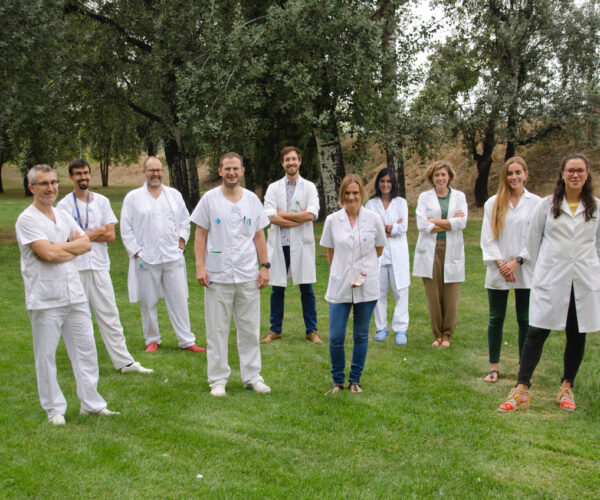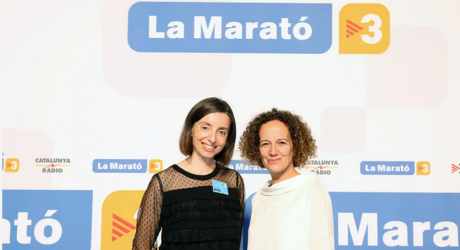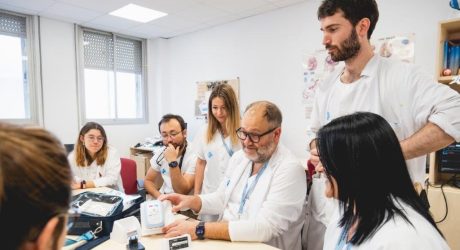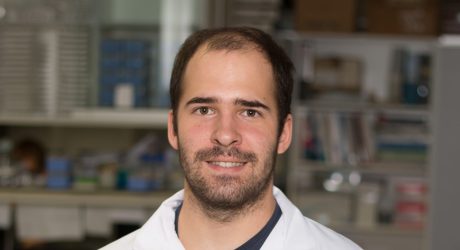Lleida promotes the REMOTE-CAT clinical trial to study the benefits of applying neuroprotective therapy in the first moments of a stroke
The treatment consists of performing brief compressive stimuli on the arm of the person suspected of having a recent stroke in the ambulance, before arriving at the hospital to improve cerebral circulation
The Stroke Unit of the Department of Neurology at the Arnau de Vilanova University Hospital in Lleida (HUAV), the Clinical Neuroscience group at the Lleida Institute for Biomedical Research (IRBLleida), the University of Lleida (UdL) and the Medical Emergency Service have launched the REMOTE-CAT clinical trial to study the benefits of applying brief episodes of compression to the arm to increase intracranial circulation, in the first moments that a person has suffered a stroke. The evaluation of this safe, simple and low-cost therapy, known as remote ischemic conditioning (RIC), will show whether its application provides neuroprotective treatment before the patient arrives at a hospital’s emergency department and will help improve medical care for patients who have suffered a stroke.
The RIC therapy consists of applying cycles of swelling and deflation, each lasting 5 minutes, in the ambulance, before arrival at the hospital, and continues in the hospital, if necessary. The study will involve 5 centres (the Arnau University Hospital in Vilanova de Lleida, Bellvitge Hospital, Vall d’Hebron Hospital in Barcelona, Mar Hospital in Barcelona and Sant Pau Hospital in Barcelona) and 572 adult patients diagnosed with suspected stroke within 8 hours of the onset of symptoms. The results of the project are expected to be available in 2022. So far, 80 patients have been recruited. The success of the project is based on the coordination of patient care during ambulance transfer and care at the Hospital.
Francesc Purroy, a doctor from the Neurology section of the HUAV, professor at the UdL and head of the Clinical Neurosciences group at IRBLleida, states that “this project will make it possible to see whether a simple, low-cost action started during the ambulance transfer has a neuroprotective effect on patients with acute stroke and improves their evolution”.
Stroke is a common disease which is considered the first cause of disability in adults and the second cause of dementia in Spain. It is also the leading cause of death in women and the second in men. Worldwide, every second person is said to suffer from an ischemic stroke. According to data from the Master Plan for Cerebrovascular Diseases in Catalonia, there are 13,000 new cases. There are currently only two treatments available to treat ischemic stroke: the removal of the clot through the administration of drugs and/or the extraction of the clot by means of a mechanical device (mechanical thrombectomy). Unfortunately not all patients can benefit from these existing treatments. Neuroprotective therapies, such as the one proposed in this study, could provide a new therapeutic option for patients who are not candidates for these treatments. The Clinical Neurosciences group has evidence in animal models that show that RIC has a favourable effect on stroke. This is why this multicenter study has been proposed, led by Dr. F, Purroy of IRBLleida.
The ICTUS code programme of the Catalan Agency for Healthcare Quality and Assessment (AQuAS), the CIBER of Epidemiology and Public Health (CIBERESP), the Stroke Unit of Bellvitge Hospital, the Medical Emergency Service of l’Hospitalet de Llobregat, the Stroke Unit of the Department of Neurology of Vall d’Hebron Hospital in Barcelona, the Neurovascular Research group of the Department of Neurology of the Hospital de Mar Institute of Medical Research-Hospital de Mar, the Department of Medicine of the Universitat Autònoma de Barcelona, the Neuroradiology section and the Magnetic Resonance Unit of the Department of Radiology of the Hospital Universitario Vall de Hebrón, the Universitat Autònoma de Barcelona, and the Stroke Unit of the Hospital de Santo Pablo in Barcelona, also collaborate in the research.
The research is made possible thanks to grants from the University and Research Grants Management Agency (FP: 2017 SGR 1628), the Carlos III Health Institute, the European Union (ERDF A way tono make Europe) (FP: Project PI17-01725) and INVICTUS, a network of brain vascular diseases.
Purroy Francisco, Arqué Glòria, Mauri Gerard, García-Vázquez Cristina, Vicente-Pascual Mikel, Pereira Cristina, Vazquez-Justes Daniel, Torres-Querol Coral, Vena Ana, Abilleira Sònia, Cardona Pere, Forné Carles Jiménez-Fàbrega Xavier, Pagola Jorge, Portero-Otin Manuel, Rodríguez-Campello Ana, Rovira Àlex, Martí-Fàbregas Joan, REMOTE Ischemic Perconditioning Among Acute Ischemic Stroke Patients in Catalonia: Frontiers in Neurology, 11, 2020, 10. 3389/fneur.2020 .569696




